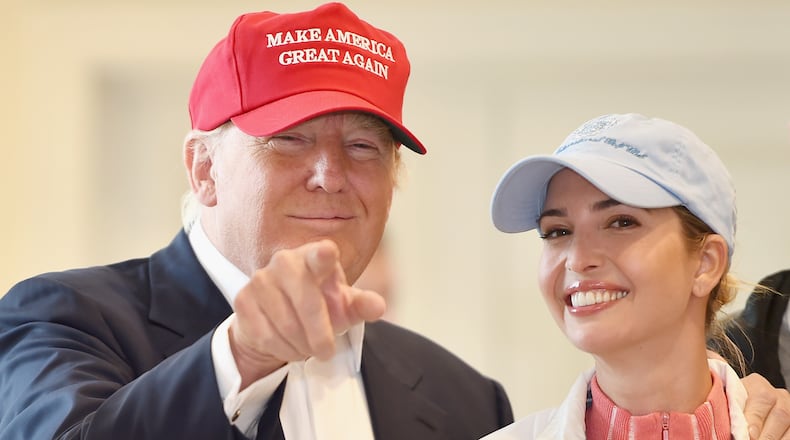Georgia has appealed a federal judge's ruling that could clear the way for the first independent candidate to appear on Georgia's presidential ballot since Pat Buchanan qualified for the Reform Party in 2000.
Georgia Secretary of State Brian Kemp, who oversees elections in Georgia, on Wednesday asked the 11th Circuit U.S. Court of Appeals in Atlanta to review a ruling that lowered the number of signatures required to petition to get on the ballot from tens of thousands to 7,500.
Kemp's office said he filed the appeal both to uphold Georgia law and because the plaintiffs seek more than $200,000 in attorneys fees if the state loses the case.
If not, the law said a candidate must otherwise have collected signatures from at least 1 percent of the registered voters who were eligible to vote in that race in the previous election. In 2012, when the lawsuit was filed, that would have amounted to at least 50,334 signatures.
Both the Constitution and Green parties told (Judge Richard) Story that if the law remained the same, they faced a minimum requirement of 50,334 signatures but would likely have to get at least 70,000 signatures to pass muster.
The state, in fighting the suit, had argued that the parties should have to show what Story called "a modicum of support," and it said that lower signature requirements could result in voter confusion and a crowded presidential ballot.
The case could raise tantalizing possibilities if a third-party conservative challenger emerges to siphon votes from Donald Trump if he wins the GOP crown - or from Trump himself if he's denied the nomination.
Then there was this nugget from the Morning Jolt a few days ago:
Amanda Swafford, a one-time Libertarian candidate for U.S. Senate, has floated a potential bargain with the Georgia GOP that might help Republicans in the 2018 race for governor, but could boost the third party's chances in down-ticket races. Here's what she posted on Facebook:
The trade:
(2) No petitioning requirements for any recognized political body candidates (presently, Libertarians) in 2018 thru 2020 for any partisan office in Georgia. Qualifying fees only, just as any other political party candidate must pay.
(3) No appeal of the Green Party v. SOS decision (Setting Georgia's Presidential signature requirement @ 7,500 until the legislature acts)
She told us it was a potential response to a federal judge's decision last month that ruled a portion of the state's ballot access laws violated the U.S. Constitution — and significantly lowered the bar for a third-party candidate to land on the ballot.
“As an independent and someone dedicated to ballot access reform in Georgia, I think it has real potential for all parties as every side with a stake in the process concedes a little in the deal,” she said.
Doug Craig, a Libertarian who has already announced a bid for governor in 2018, said he has a meeting with Secretary of State Brian Kemp's office this month to discuss a potential deal.
“I could live with that,” he wrote of Swafford’s proposal, “but would love a long-term solution.”
About the Author
The Latest
Featured




